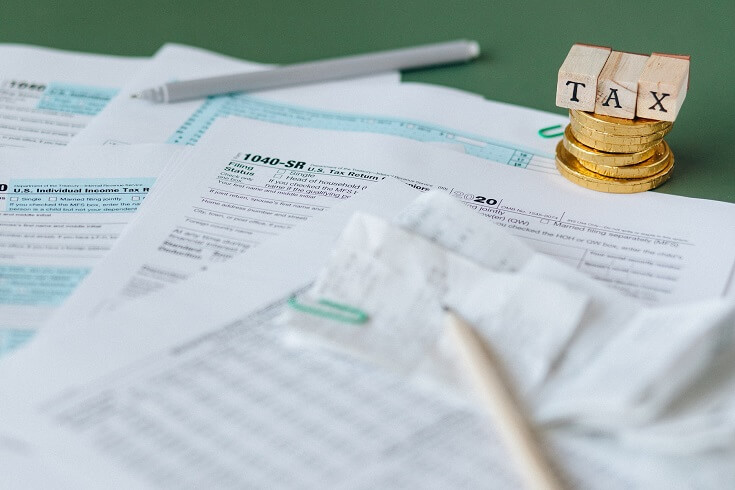In a world where businesses are constantly seeking opportunities for growth and expansion, understanding the corporate tax rate of a country becomes crucial. Indonesia, with its diverse economy and strategic location in Southeast Asia, has attracted the attention of entrepreneurs and investors alike.
In this comprehensive guide, we will delve into the intricate details of Indonesia’s corporate tax rate, exploring its implications, incentives, and strategies for businesses.
Also read: Business Registration Number vs Tax ID: The Key Differences
What is Corporate Tax?


Corporate tax, often referred to as income tax for businesses, is the tax levied on a company’s profits. It’s a vital source of revenue for the government, enabling the funding of public services and infrastructure development.
Also read: Understanding Indonesia Business Law: A Comprehensive Guide
Indonesia Corporate Tax Rate in 2023
The corporate tax rate in Indonesia is 22% for the fiscal year 2023. This applies to all companies, regardless of their nationality or location. There are a few exceptions to this rule, such as small businesses and companies that operate in certain industries.
Small businesses with a turnover of less than IDR 50 billion are subject to a corporate tax rate of 1%. Companies that operate in the agriculture, fishery, and forestry sectors are subject to a corporate tax rate of 15%.
There are also a number of deductions and exemptions that can be claimed by businesses, which can reduce their effective tax rate. For example, businesses can deduct the cost of research and development, and they can also deduct the cost of training their employees.
The corporate tax rate in Indonesia is relatively high compared to other countries in the region. However, the government is offering a number of incentives to attract foreign investment, such as a reduced corporate tax rate for companies that invest in certain industries.
If you are considering investing in Indonesia, it is important to consult with a tax advisor to understand the tax implications.
Also read: What is NPWP in Indonesia: A Comprehensive Guide
Tax Compliance and Reporting for Corporations in Indonesia


Here are some of the tax compliance and reporting requirements for corporations in Indonesia:
Corporate income tax
Corporations are required to pay corporate income tax on their net income. The rate for corporate income tax stands at 22%.
Value-added tax (VAT)
Corporations are required to register for VAT if their annual turnover exceeds IDR 4.8 billion (around US$340,000). VAT is a taxation system applied to the increased value of goods and services at every phase of production and distribution. The standard VAT rate is 11%.
Withholding tax
Corporations are required to withhold tax on certain payments made to individuals and businesses, such as salaries, interest, and dividends. The withholding tax rates fluctuate according to the nature of the payment.
Also read: Indonesia Tax Rate in 2023
Capital gains tax
Corporations are required to pay capital gains tax on the sale of certain assets, such as stocks and real estate. The capital gains tax rate is 0% to 30%, depending on the holding period of the asset.
Foreign exchange gains and losses
Corporations are required to declare and pay tax on foreign exchange gains and losses. The tax rate is 0% to 30%, depending on the length of time the foreign exchange asset was held.
Transfer pricing
Corporations are required to comply with transfer pricing rules, which are designed to prevent tax avoidance through artificially low or high prices charged between related parties.
In addition to these taxes, corporations may also be subject to other taxes, such as excise taxes, property taxes, and environmental taxes.
Also read: 10 Challenges of Doing Business in Indonesia
Tips for Hassle-free Indonesian Corporate Tax Compliance
The tax compliance and reporting requirements for corporations in Indonesia are complex and can be difficult to understand. It is important to consult with a tax advisor to ensure that your corporation is compliant with the law.
For a simpler and hassle-free Indonesian corporate tax compliance, you can rely on InvestinAsia’s Indonesia tax consultant and compliance services. Our experienced team of professionals is ready to assist you in every tax matter, such as:
- Accounting and tax reporting services in Indonesia
- Indonesia Payroll Service
- Indonesia LKPM Reporting Service
- Indonesia VAT Taxpayers Registration
Contact us for a FREE tax consultation and get special offers!
In conclusion, understanding Indonesia’s corporate tax rate is essential for businesses looking to thrive in this vibrant market. By leveraging tax incentives, complying with regulations, and adopting effective tax planning strategies, companies can navigate the Indonesian business landscape successfully.



